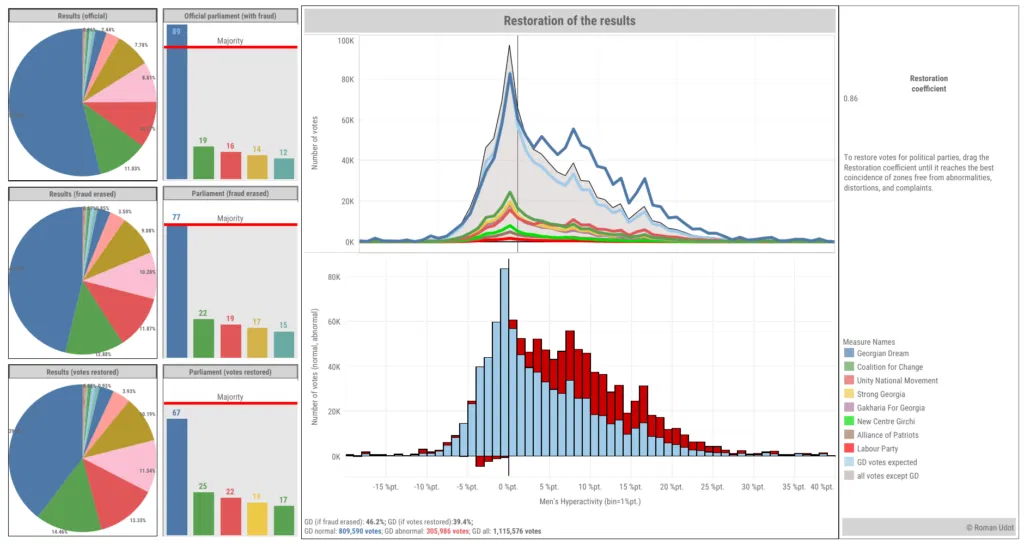**Election Data Reveals Discrepancies in Georgia’s Vote**
Roman Udot, a Russia-based election data analyst and former political prisoner, has analyzed the vote count from Georgia’s October 26 elections. He found serious discrepancies that affect the official results.
Udot compared male and female voter behavior and estimated that the ruling Georgian Dream (GD) party gained 300,000 fraudulent votes. If these were removed, GD’s share of the vote would drop to 39%, not enough for a parliamentary majority.
**Data Shows Anomalies in Voting Patterns**
Udot used statistical analysis methods to identify unusual patterns in voting behavior. He found significant differences between male and female voter turnout in some regions, which he calls “gender deviation.”
These irregularities were more pronounced in areas where monitoring was limited. Udot calculated the number of “Extra Men” who voted beyond what would be expected if male turnout matched female turnout.
He estimated a total deviation of 94,000 “Extra Men” across the data. This could indicate real individuals or irregularities in the voting process.
**Comparison of Voting Metrics Shows Distortions**
Udot compared two metrics: Men’s Hyperactivity and Gender Deviation. He found that while these metrics show disruptions in voter turnout, they are relative and unaffected by differences in gender composition.
Assuming parties should reflect the gender composition of their voters, Udot broke GD’s results into two components: normal votes (proportional to other parties’ patterns) and anomalous votes. He estimated 300,000 anomalous votes for GD.
**Manipulations Did Not Affect Turnout**
Udot notes that manipulations did not affect voter turnout but rather “reallocated” votes between parties. Using a formula to restore true results, he estimates GD’s share at approximately 39%.
“This means that the Georgian Dream party does not have a majority in Parliament,” concludes Udot.
Read More @ civil.ge













